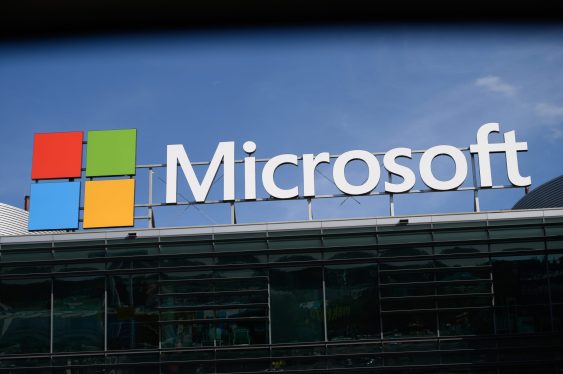Introduction
In BriefPosted: 11:52 AM PST · January 3, 2025
Image Credits:Aleksander Kalka/NurPhoto / Getty Images
Mary Ann Azevedo
Microsoft has announced its ambitious plan to allocate $80 billion in its fiscal year 2025 towards the construction of AI-enabled data centers. This move underscores the company’s commitment to advancing artificial intelligence (AI) technologies and their integration into global infrastructure. The initiative is expected to drive significant progress in AI research, development, and deployment across various industries.
Background on AI and Computing Power
The demand for AI-driven computing power has surged in recent years, fueled by the rapid advancements in machine learning, data analytics, and artificial intelligence applications. As per industry estimates, global AI activity is projected to reach $120 billion by 2030, with a compound annual growth rate (CAGR) of 35% from 2023 to 2028. This exponential growth necessitates the construction of state-of-the-art data centers capable of handling the immense computational demands of AI workloads.
One of the key challenges in scaling AI capabilities is addressing the power consumption and infrastructure limitations associated with large-scale neural networks. The increasing complexity of AI models requires access to distributed computing systems, high-speed interconnects, and energy-efficient power supply solutions. Microsoft’s decision to invest heavily in AI-enabled data centers reflects its strategic focus on overcoming these challenges.
Microsoft’s Commitment to AI-Driven Data Centers
Microsoft has revealed that $80 billion of its fiscal year 2025 budget will be allocated to the construction of AI-driven data centers. These facilities are designed to support AI models, including training and inference tasks, as well as the deployment of cloud-based applications globally.
Key Objectives of the Data Center Initiative
The primary goal of Microsoft’s investment is to train AI models while simultaneously deploying AI and cloud-based applications worldwide. The company aims to leverage these data centers to enhance its Azure platform, improve artificial intelligence capabilities, and expand its market leadership in the cloud computing sector.
Location Focus
According to Microsoft Vice Chair and President Brad Smith, over 50% of the allocated budget ($40 billion) will be utilized for projects within the United States. The focus on U.S.-based data centers is attributed to the country’s robust infrastructure, skilled workforce, and strategic position as a global innovation hub.
Long-Term Vision
Smith emphasized that AI is poised to become a transformative force, reshaping industries across every sector of the economy. "The United States stands at the forefront of this new technological wave," he stated. "If we continue to capitalize on our strengths and foster international partnerships, we can ensure that the U.S. remains a leader in AI-driven innovation."
Collaboration with OpenAI
In April 2025, Microsoft reportedly engaged in preliminary discussions with OpenAI regarding the construction of an AI supercomputer known as Stargate. The proposed facility was estimated to cost over $100 billion, making it significantly more expensive than Microsoft’s planned $80 billion investment.
Despite the financial disparity, Microsoft has recently taken a strategic step by prioritizing its competition with OpenAI in an SEC filing. This move underscores the company’s commitment to maintaining its dominance in the AI and cloud computing markets. However, the exact nature of this competition remains unclear, prompting speculation about potential price wars or strategic partnerships.
Challenges Ahead
The rollout of AI-driven data centers is not without challenges. One of the most pressing concerns is the increasing power consumption associated with training large-scale AI models. As these systems grow more complex, they require access to greater bandwidth and energy efficiency, which can lead to power shortages in data centers.
To address this issue, Microsoft has explored various innovative solutions, including the development of energy-efficient computing architectures and the integration of advanced cooling systems. These initiatives aim to minimize operational costs while ensuring reliable power supply to AI-driven infrastructure.
Future Plans
Microsoft’s announcement signals a significant pivot toward leveraging AI-powered data centers as a cornerstone of its strategy for building a "smarter" global economy. The company is expected to continue investing heavily in research and development, focusing on breakthroughs in machine learning, artificial intelligence, and cloud computing technologies.
Moreover, Microsoft’s collaboration with OpenAI highlights the importance of partnerships in advancing AI capabilities. By combining resources and expertise, the two companies aim to create a platform that can accelerate innovation across multiple industries.
Newsletter Signup
For the latest updates on Microsoft’s AI-driven data center initiatives and other cutting-edge technological advancements, consider subscribing to our newsletter. Stay informed about the future of technology by filling out the form below:
This email is protected by our advanced spam filtering solutions. For details on how we protect your privacy, please visit our privacy policy.
